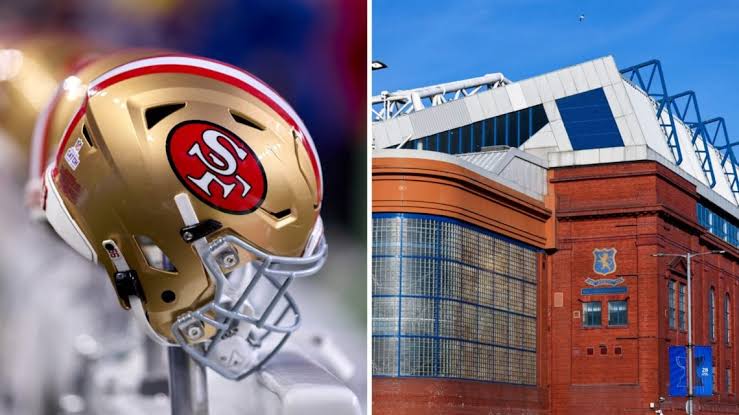
There’s growing optimism that Rangers Football Club is entering a transformative period, with the 49ers Enterprises closing in on a takeover that could reshape the club’s future. Former chairman Dave King recently confirmed that the American group is around 90% of the way toward finalising a deal, and their executive team is already involved in the search for a new manager at Ibrox.
The 49ers have already demonstrated their footballing ambitions at Leeds United, where they’ve initiated major projects, including the expansion of Elland Road. Their approach indicates they are serious about building sustainable football operations. However, despite their financial clout, the new regime at Rangers won’t be able to simply pour in cash this summer due to UEFA’s Financial Fair Play regulations, which limit how much money owners can invest without matching revenue growth.
Rangers’ financial struggles have been well-documented, and recent Fan Advisory Board meeting minutes have added to concerns. According to the minutes, UEFA’s Financial Sustainability Regulations now apply to all types of club spending — including areas previously considered exempt like stadium upgrades, youth academies, and women’s football. This means that even investments in infrastructure, once seen as long-term positive contributions, now fall under strict regulatory oversight.
This development complicates any immediate hopes fans may have had about significant investments in the squad or major redevelopment projects. For example, while expanding Ibrox could help close the revenue gap with Celtic, it’s now far from straightforward. Unless the 49ers find a creative way to work within these limitations, such projects may have to be put on hold.
The reality is that Rangers can no longer count on outside capital injections to fund improvements. Instead, the club must focus on generating more income. This could come through a number of avenues: boosting commercial and sponsorship revenue, making smart player sales, and even exploring naming rights for Ibrox or the training ground — ideas that have previously been floated.
The silver lining is that the 49ers, as a multi-billion-pound enterprise, bring an unparalleled level of commercial expertise to the table — far beyond what previous leadership could offer. Their experience in maximising revenue streams, particularly in the highly competitive American sports market, could prove crucial for Rangers as they navigate this financially restricted landscape.
While the financial constraints may temper expectations in the short term, the arrival of the 49ers Enterprises signals a strategic shift. With long-term planning, commercial savvy, and regulatory compliance, Rangers could be on the path to a sustainable resurgence — even if it means being more measured and methodical than supporters may have hoped.







